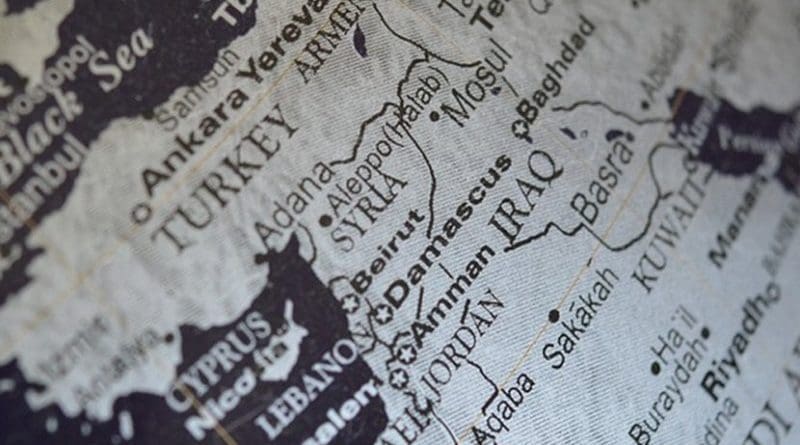Will Turkey-Syria Conflict Grow Into Massive War? – OpEd
By Press TV
By Mohyeddin Sajedi
When recently asked about Washington’s policy change vis-à-vis the ongoing Syrian crisis, Pentagon spokesman, George Little, said the Department of Defense had nothing to do with the case.
However, he said: “We have broad-based concerns about the conflict in Syria, period. We have concerns about weapons proliferation inside Syria and yes, we do have concerns that some of those weapons could fall into the wrong hands.”
If these remarks reflect the US real policy towards Syria, Washington would be in no harmony with some of its allies to that effect. Qatar and Saudi Arabia keep calling for the delivery of warfare to Syria, no matter into which hands these weapons might fall. US media have recently reported that these two Arab governments – both totally strange with democracy and human rights – have scaled down their arms assistance to the opponents of Syrian President Bashar al-Assad. These media reports are still unreliable.
Doubtlessly, Syria’s armed opposition has failed to take full control of the city of Aleppo, and have had to retreat from some neighborhoods in the most populated Syrian city. This failure, instead of being hailed as a victory for the Syrian Army, is attributed to less arms delivery by Qatar and Saudi Arabia. This hypothesis could be examined.
Turkey initiated its war on Syria more than a year ago. The Syrian opposition is headquartered in Turkey, and until recently, the armed insurgents command was based on Turkish soil. There is no proof of a possible transfer of this command into Syria.
Turkey is the chokepoint for the delivery of warfare and troops into Syrian territory. The Syrian Free Army (SFA) is being assisted from north Lebanon and border with Jordan, but the main artery is Turkey, which houses the center for commanding military operations inside Syria. NATO military and security officers, Qatar, Saudi Arabia and Jordan have set up a joint operations room on Turkish soil.
Turkey inspects Damascus-bound passenger planes. No other statesman in the world insists on the resignation of the Syrian president, and rebukes the United Nations Security Council for foot-dragging as much as Turkish Prime Minister Recep Tayyip Erdogan does. Istanbul regularly gives a rapturous welcome to Syrian opposition groups like its National Council.
Are these realities still insufficient to indicate indirect conflict between Turkey and Syria? Anyway, the question is to know when Turkish Army would directly invade Syria to trigger a massive war.
When Syrian artillery fire shot down a Turkish warplane in the Mediterranean coast, NATO issued a threatening statement in support of its longtime member. When only a single mortar shell fired from Syria landed in the Turkish border town of Akcakale killing five people, NATO repeated its statement. At the same time, NATO Anders Fogh Rasmussen rushed to tell journalists that NATO has no intention of military intervention in Syria.
Over the past 19 months, Turkey has failed to win over its Western allies to enforce a no-fly zone over Syria. Moreover, Turkey’s attempt to convince them to establish a safe zone in north Syria ended in failure. French Foreign Minister Laurent Fabius was the only statesman to take side with Turkey, saying Paris would recognize any interim government representing the new Syria. The Syrian opposition was supposed to seize a large swath of land in north Syria and establish an interim government there to be recognized by Western governments. All these plans hit impasse and Turkey felt despaired.
If an extensive war breaks out between Turkey and Syria, the latter would not have too much to lose because its economy has already been ruined by domestic war of attrition. But Turkey could not risk losing its economic achievements, notably because such the extent of such a war would be unknown. Such a conflict would not be limited to border zones and the Syrian territory. A terrorist operation inside Turkey’s economic zones would scare away tourists and foreign investors who have brought about economic blossoming for Turkey.
The Turkish government feels obliged to adopt strong position vis-à-vis several deaths in a border town, which constitute a case or violation of its territory integrity, deploy more troops along the border and take more precautionary measures. But the deployment of these troops does not imply an invasion. Even Turkish Army’s air defense has been installed far from the border and does not pose any serious threat to Syrian fighter jets. A Syrian helicopter may have to enter the Turkish airspace shortly to target opposition insurgents at border with Turkey, but it will have to leave as soon as it receives a warning.
Turkey’s Army commanders are not willing to enter any war. Strikes on the bases of Kurdistan Workers’ Party (PKK) in northern Iraq go on, but nothing has so far happened in north Syria. Ankara and Baghdad signed a treaty in the 1980s for the Turkish Army to advance 10 kilometers into Iraq’s soil. One decade later, former Iraqi dictator Saddam Hussein, extended this perimeter to 30 kilometers. The current Iraqi government is willing to scupper this agreement and is unwilling to renew it. The odds are that Massoud Barzani, leader of autonomous Kurdistan region in Iraq, is in favor of the extension of this treaty, while logically, he is expected to support the rights of Kurds.
Turkey is at loggerheads with everyone.

